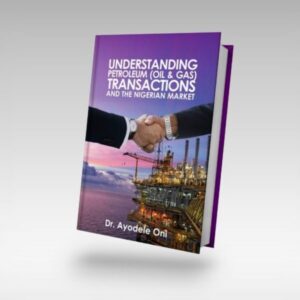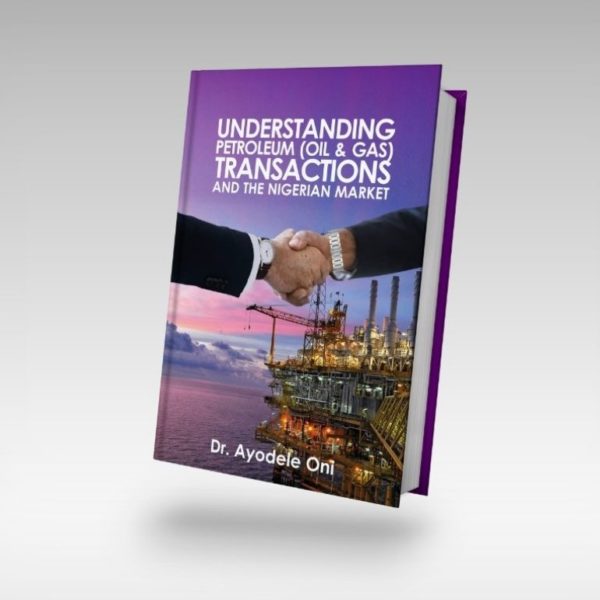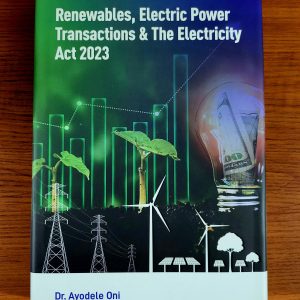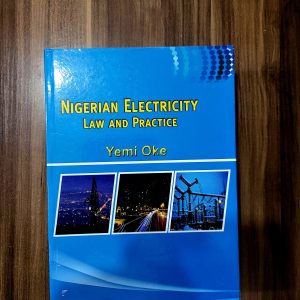Description

This book is founded, largely, upon the author’s over fifteen (15) years of experience, advising on both big ticket and smaller cap deals in the oil and gas industry. The oil and gas industry in Nigeria has been busy in the last two (2) decades, especially with the advent of democratic rule in the year 1999 which substantially improved investor confidence. Between the year 1999 and now, a number of the international oil companies, such as shell petroleum development company and Chevron, have divested some of their interests, particularly in onshore acreages. Many of the new owners of these acreages are local juniors who are now in joint venture with national oil company of Nigeria- Nigerian National Petroleum Corporation (“NNPC”), under a new construct- Asset Management Teams. There have also been marginal fields bid rounds, last of which took place in the year 2020. Luckily, the author of this book has actively advised on different aspects of the above-mentioned divestment and marginal fields transactions. He has, thus, highlighted in this book, some of the key issues and take-aways from those.
The last twenty (20) years have also ushered in changes, in the oil and gas industry with new policies such as those related to local content and domestic gas supply obligations. The predominant structure of financing by NNPC has changed to the forward sale type financing structure, first utilized in the financing of the Oso Condensate Project and since then there have been other significant financing modes including NNPC/Chevron Project Cheetah and the big ticket Ajaokuta Kaduna Kano Pipeline Project. Luckily, the author has been involved in many of these financings and has had first-hand experience advising either the NNPC or its counterparty on issues such as the World Bank Negative Pledge, federation account, waiver of sovereign immunity and the controversies surrounding same.
For a long time too, there have been discussions around changing the legal and regulatory regime of the oil and gas industry, from the Petroleum Act which is a 1969 legislation, to another, via the introduction of the Petroleum Industry Bill (the “PIB”) nearly fifteen (15) years ago. This book highlights some key provisions of the latest version of the PIB. Further, the book contains a thorough analysis of transactional issues such as the why and how of due diligence exercises and reports. Due diligence exercises and reports are very important aspect of any significant transaction. Hence, this book, being one that traverses transactional issues, does a great job by providing insights into the topic of due diligence, from a more practical, than theoretical, point of view. It also highlights the latest legal and regulatory developments, such as the newly issued Nigerian Gas Transportation Network Code, which the author also played a meaningful role in bringing to life. Other recent changes highlighted include the enactment of the Deep Offshore and Inland Basin Production Sharing Contracts (Amendment) Act which changes the fiscal regime of Production Sharing Contracts and the Finance Act, which now makes dividends payable by upstream companies subject to taxation with the repeal of section 6 of the Petroleum Profits Tax Act. Regarding financing, a creative mode of financing was also developed for the financing of Nigerian LNG Train-7. This book does highlight that creative financing mode.
Apart from the foregoing, the book analyses host government contracts, transactional and regulatory issues in upstream acquisition-type deals, takes a comprehensive look at the downstream petroleum sector and highlights the issues, looks at the marginal fields regime and practical issues faced by the holders of marginal fields. The book also takes a critical look at refineries and refining and looks at the role of modular refineries and why modular refineries may not necessarily improve the availability of premium motor spirit/ gasoline, colloquially referred to as ‘petrol’.
The book recognizes that, as far the oil and gas sector is concerned, foreign investors will always play a role and consequently looks at how to give such investors comfort that they are able to go to international arbitration or in some cases, rely on bilateral investment treaties, their home countries may have signed with Nigeria. It is, in fact, not just the case that they can go to international arbitration, arbitral awards are enforceable in Nigeria and this is crucial because as Frank Alexander, an international energy law veteran, put it succinctly, “enforceable international arbitration is one of the pillars of the three pillars of security of investment under PSCs and other host government contracts”. Finally, the book looks at energy transition, especially from a Nigerian perspective.






Reviews
There are no reviews yet.